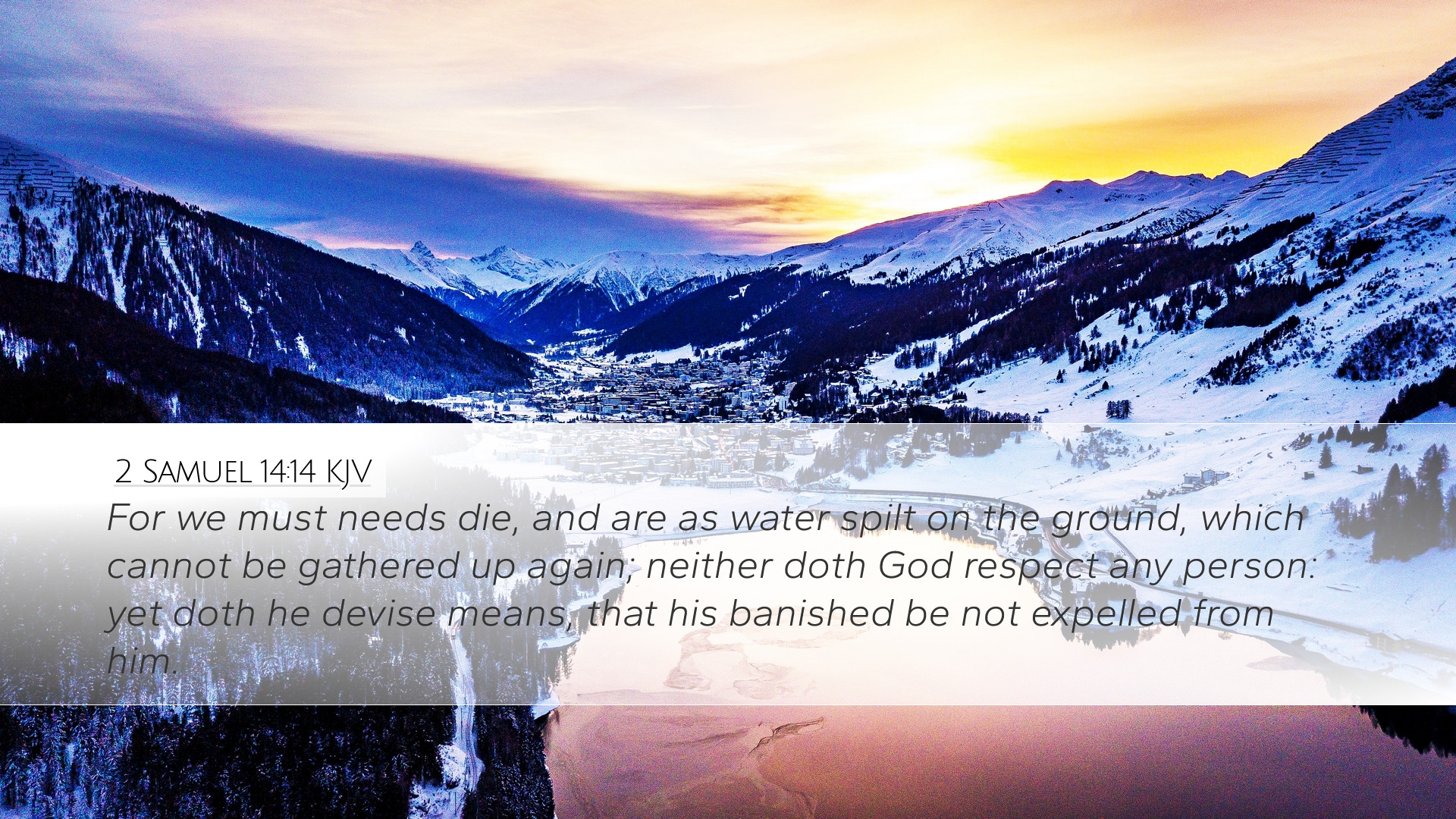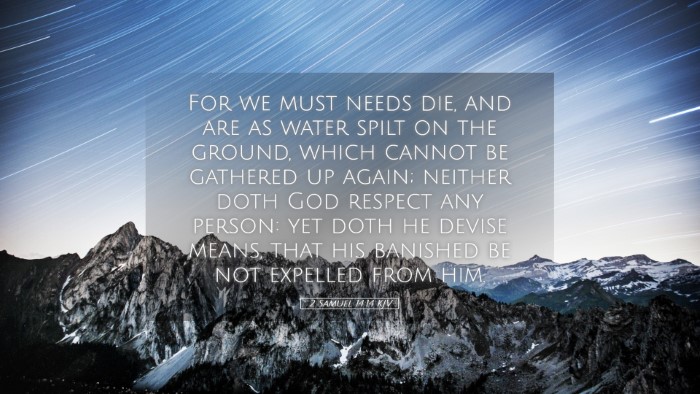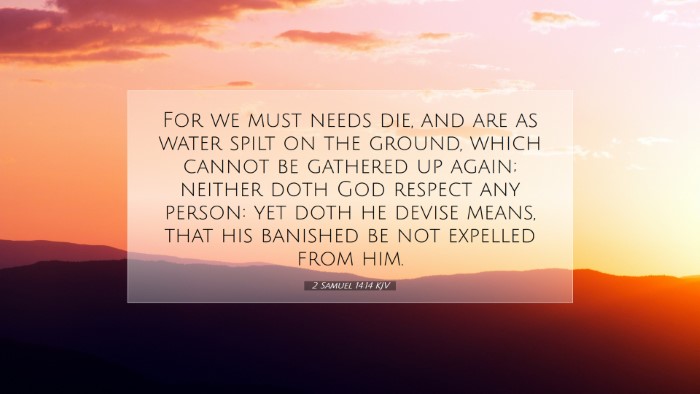2 Samuel 14:14 Commentary
Verse Reference: 2 Samuel 14:14
"For we must needs die, and are as water spilt on the ground, which cannot be gathered up again; neither doth God respect any person: yet doth He devise means, that His banished be not expelled from Him."
Introduction
This poignant verse from 2 Samuel highlights the inevitability of death and the precious opportunity for reconciliation and restoration in the face of separation. It encapsulates deep theological insights relevant to human existence, divine mercy, and social justice—ideas that resonate with pastors, scholars, and theologians alike.
Thematic Insights
- The Inevitability of Death:
Matthew Henry reminds us that death is an inescapable reality for all humanity. This human condition underscores the urgency of seeking reconciliation with God and one another, emphasizing our fragility.
- Human Frailty:
Albert Barnes interprets the analogy of "water spilt on the ground" as a metaphor for human life, suggesting that just as spilled water cannot return to its source, our opportunities in life are fleeting. This metaphor serves as a call to recognize the value of our moments and relationships, which require nurturing.
- Divine Justice and Mercy:
Adam Clarke provides insight into the character of God, who, despite His justice, takes active steps to restore that which is lost. This reveals God's heart for redemption, indicating that He devises ways for reconciliation with His people, even those who seem outside His favor.
Commentary Summary
The context of 2 Samuel 14 provides a backdrop for understanding the personal and societal implications of the passage. Absalom’s estrangement from David serves as a representation of the fractured relationships resulting from sin and conflict. The woman of Tekoa, who speaks to David, symbolizes the need for wisdom in resolving disputes and guiding leaders toward compassion.
1. The Reality of Death
This verse begins with an acknowledgment of mortality. The phrase "we must needs die" serves as a stark reminder of human existence's transient nature. Scholars across the ages have echoed this sentiment. It not only humbles individuals but also cultivates a sense of urgency in living wisely and responsibly.
2. The Analogy of Spilt Water
The image of water that is "spilt on the ground" communicates a profound truth about the permanence of losses we endure. Matthew Henry elaborates on this metaphor, urging believers to recognize that once moments are lost, they cannot be regained. Hence, it is imperative for individuals to reflect on their lives and ensure they are living in ways that honor God and seek lasting relationships.
3. The Character of God
As the verse transitions to God’s attitude toward His people, it emphasizes that "neither doth God respect any person." This point is critical in understanding God’s impartiality and justice, suggesting that divine favor is not based on social status or meritocracy. Clarke reinforces this by explaining that while God holds humanity accountable, He still seeks to restore and redeem those who have been "banished."
Theological Implications
- God's Intent for Redemption:
In the latter part of the verse, "yet doth He devise means," reflects the proactive nature of God's heart. His desire to bring back the banished indicates a divine initiative toward restoration, a key theme throughout Scripture.
- Human Responsibility:
Believers are urged to understand their role in fostering reconciliation, recognizing the tension between divine sovereignty and human agency. While God is the primary agent of restoration, individuals are called to be vessels of His love and forgiveness.
- Covenantal Themes:
This verse can also be seen through the lens of covenant. God’s covenant with His people implies a deep investment in their restoration, highlighting His unwavering commitment to redeem them, aligning with the broader narrative of salvation history.
Conclusion
In 2 Samuel 14:14, we are confronted with profound truths about mortality, divine mercy, and the need for reconciliation. It serves as a reminder of our human condition, the fleeting nature of life, and the unconditional love of God that seeks to restore the lost. Pastors, students, and theologians are encouraged to delve deep into this text, using it as a springboard for reflection on their lives and ministries, and to embody the reconciliation that God so desires for His people.


